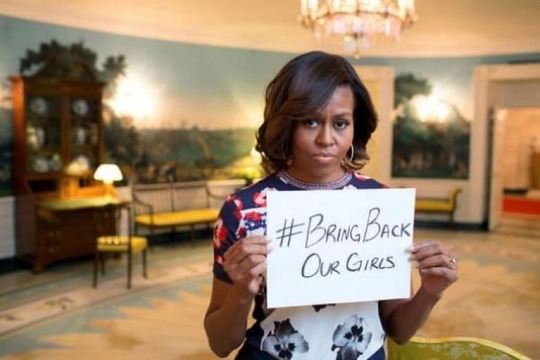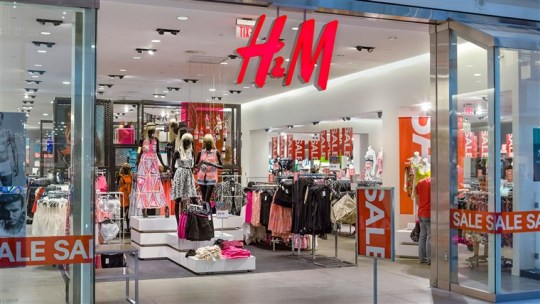Don't wanna be here? Send us removal request.
Text
Blog Post #4 A Tool For Terrorists

If you were to ask anyone to list the major problems the world is facing, I guarantee that terrorism would be one of them. Terrorism affects people across the world, inciting fear in the hearts of many as a result of globalization. Social media, particularly, is a large factor in the dissemination of these extreme events. In fact, it is the main reason why people think that terrorism is much bigger of an issue than it actually is. The media really tends to magnify these terrorist attacks for the public.
I think specifically of the Paris attacks that occurred recently in 2015. So many people became aware of this event through the news and social media, with celebrities tweeting and posting their prayers for the victims of this tragedy. Facebook, for example, created a profile picture filter to raise awareness for its billions of users to take part in. Madonna stated that she was going to keep on living her life because if she stopped, she’d be doing exactly what the terrorists wanted.
I think that while this particular sentiment Madonna made may be easily construed or simplified, a deeper look shows that it might have some foundational truth to it. The important question we must ask is what the terrorists really want to accomplish. What all these attacks all seem to have in common is a desire to make the event public. Terrorists know that celebrities like Madonna will spread the news to their wide audiences, and that the news reporters will over-report the tragedy. Essentially, they are using them as tools to spread their message to as many people as possible.
This brings us to the controversy of social media’s role in all of this. What kind of attention should we be giving these events? Is it possible that the very fact that we are raising awareness on social media to help, is actually encouraging future terrorist attacks? Is there any way we can show the victims of these tragedies that we care, without perpetuating the problem? All these questions bring into light our role as global citizens. There is no denying the global urgency that these attacks bring, but the real inquiry is what exactly we should do about it. Our task is to determine a way that we prevent these horrific attacks from happening to our fellow citizens across the world, and maybe social media is a place to start.
https://www.independent.co.uk/news/people/paris-attacks-madonna-breaks-down-after-stopping-concert-to-pay-tribute-to-victims-of-massacre-with-a6735726.html
0 notes
Text
Blog Post #3 Global Slacktivism

There are a lot of different ways that individuals and groups try to good in the world, and essentially fulfill the perceived mandate of global citizenship. Social media has certainly expanded platforms and the ability for this to happen on a global scale. It of course does not come without its critiques. Social media has also become a superficial front for people to look like they are good people, with no obligation to really be good. I think specifically of voluntourism and the idea of ‘instagramming Africa’ where white girls pose with black children in pictures often to promote the image of a ‘do-gooder’ to their followers. This critique can also be applied global activism on social media.
A common term for it is ‘slacktivism’, which effectively captures the idea of having to put less effort while still achieving the ‘feel-good’ factor. It seems that while social media creates awareness around the world, it has become a way for people to participate in low-risk activism with weak ties. Not only this, but there is a risk of oversimplification. Major, complicated issues are reduced to simple hashtags that can’t possibly describe the issue at hand properly.
In 2014, the reporter Caitlin Dewey delves into a particular issue where this kind of activism can actually do harm in The Washington Post known as #BringBackOurGirls. People all over social media brought to light the kidnapping of almost three hundred Nigerian schoolgirls. High-profile celebrities including Michelle Obama got involved in this hashtag activism as well. While some people feel that awareness of the issue is it’s own kind of protest, others say that it isn’t doing any good, and may in fact be hurting it. It was argued that this #BringBackOurGirls was important for Nigerian democracy, but not for a global sentimentality. This fame that this movement has generated for these girls may have done more harm than good.
The point is that while globalization in the form of social media does work to spread awareness, it sometimes has harmful consequences to important issues. These consequences cannot be taken lightly. This is a call to think twice before supporting a cause, and to determine whether there is a better way to contribute.
source: https://www.washingtonpost.com/news/the-intersect/wp/2014/05/08/bringbackourgirls-kony2012-and-the-complete-divisive-history-of-hashtag-activism/
0 notes
Text
Blog Post #2: A Scandal of Epic Proportions

I think it’s safe to assume that most people have heard of the clothing store H&M. It’s just another multinational company selling relatively cheap, trendy clothes that has become popular and finds itself in countries all around the world. This particular company, though, has recently generated global attention for scandals that have now tainted the way many people see the brand. These incidents have presented a whole different dimension to globalization and its implications
H&M’s scandals involved being accused of racism, harsh labor laws, a lack of concern for the environment, and other things. A very well known example in which they were accused of racism, is an ad that they released of a young dark-skinned boy wearing a hoodie that read “coolest monkey in the jungle”. Instead of focusing on the topic of the scandal, it is important to note the main reason why H&M received the amount of backlash they did. If it hadn’t been for the massive audience that they had as a result of the globality of the company, this wouldn’t have been a problem of such epic proportions. High-profile celebrities became involved as well, further snowballing the impact of the issue. It is clear that what comes with the global economy is accountability.
While when we say leaders are more accountable for their actions we might think on a small scale like teachers or even large scale like the president, the same can certainly be said for multinational companies. It’s not just H&M; even the luxurious brands of Dolce & Gabbana, Gucci and Prada have had public incidents that combined have managed to alienate at least half the world’s population. “With power comes great responsibility” and with such an enormous market comes the emphasized necessity to carefully analyze actions and what kind of message they might be sending out. In other words, the responsibility of a global citizen is that much greater for a multinational company, and it seems it takes several incidents for H&M to really grasp this.
0 notes
Text
Blog Post #1: The World Is In My Closet

While there may be growing controversy over whether globalization is beneficial or harmful, I can confidently say I have been enjoying the benefits. Some of my favorite things include (but are not limited to) Apple products, Italian food, Nutella, Instagram, and Netflix. The one thing all these have in common is that each one of these is available to me in the form that it is today because of the many different processes that have led and continue to lead us to globalization.
Although not included above, a very important part of my list of favorite products of globalization is clothing. Captured in the image is a portion of my closet. Taking a look at the tags of each item alone presents a picture of the impact that globalization has had on the clothing industry.The tags read Laos, China, Bangladesh, Portugal, Spain and many other places around the world. What this implies is that although I may not see the process, the clothes I buy actually have a great global impact. A market demand in Canada means the production in another country, which in turn leads to a provision of jobs there as well. A negative aspect to this is that as a result of this global market, people in poorer countries are often taken advantage of by the wealthier countries for their cheap labor. This is a prime example of the winners versus the losers in globalization.
Fashion trends are also certainly not strictly local. Most of the fads that Canadians are currently experiencing actually originate from other countries like the United States and Europe. This indicates that the culture expressed through clothing is actually blending across the world, displaying cultural diffusion. Massive, multinational clothing companies have made it possible for people to access the exact same clothes and styles wherever you are on the globe. This is especially seen through online shopping, which allows me to order any piece of clothing from around the world and (if I have Amazon Prime) receive it at my door the next day.
We can really see that it depends on your perspective of things whether you determine globalization is positive or negative. You may be like me, and prefer to focus on the positives, but even then it is impossible to deny the negatives. We can’t forget that because of globalization, so much of what we do, specifically what clothes we buy, has an affect on people across the world and not always in a good way. This is just a reminder for everyone to think of the broader picture in the simple things, even in something as simple as your routine online shopping.
1 note
·
View note